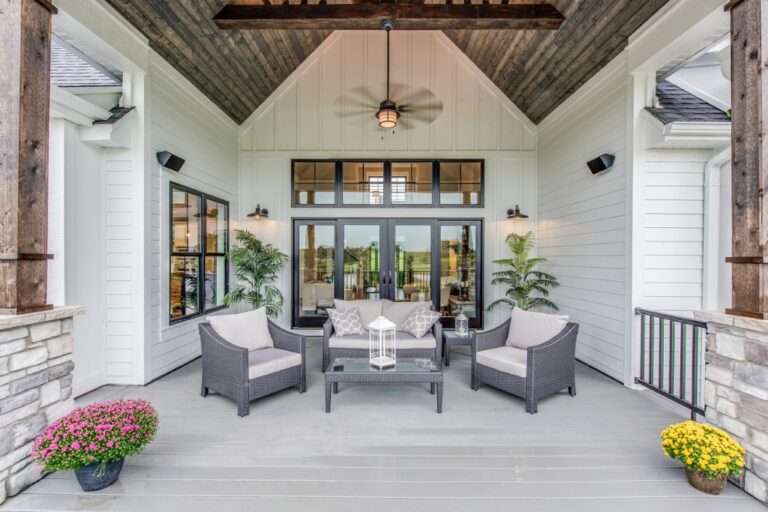How to prepare your home to sell
Are you thinking about selling your home? Maybe you have an expanding family and you’re ready for a bigger space, or you want to downsize to take advantage of the hot real estate market. There is a multitude of reasons you may decide to sell your home! This post will serve to help guide you at the beginning of your journey!
Hire a Professional!
As with any real estate milestone, whether it is buying, selling, or investing in real estate, I recommend you find a trusted Realtor as step number one. This person (hopefully me!) will be your biggest resource to ensure the process is stress-free and you get the best possible deal.
What will my home sell for?
The market tells us how much your home is worth. I will advise you on pricing after my thorough analysis of your property compared to the market, and with my recommendation in mind, it will be up to you to make the final decision.
Five Factors Affecting the Sale Price of Your Property
- Price – Based on Recent Sales: Homes that are similar to yours in the area that have recently sold are how buyers and their agents will determine the fair market value for your home.
- Location: Location is one of the most important factors in determining the value of your property.
- Condition: The condition of the property affects the price and the speed of the sale. Prospective buyers often make purchases based on emotion, so first impressions are important. I’ll advise you in optimizing the physical appearance of your home to maximize the buyer’s perception of value.
- Competition: Prospective buyers are going to compare your property—both the condition and the price—to other active listings in and around your neighborhood. To get buyers’ attention away from your competition and focus on your home, we will be competitive by properly pricing and staging your home.
- Timing: Property values are affected by the current real estate market. Because we can’t manipulate the market, we’ll collaborate on a pricing and marketing strategy that will take advantage of the first 30 days your property is listed. It’s the window of opportunity when buyers and their agents discover your property and are most likely to visit and make offers.
Of these five factors, you can only change two: price and the condition. Let’s dive into how to use these two factors to your advantage and maximize the sale price of your property!
Price Your Home Correctly
You only get to list your home correctly one time. Read that again… you can only list your home correctly ONCE. Data shows that homes get the most interest and showing activity in the first week that they are listed. That means that if you don’t list at the correct price, and then you correct after 2 weeks of lowered activity, you have missed your window, and you ultimately will not recover or be able to maximize price after the fact.
A well-priced home creates interest, attracts buyers, generates showings, and produces offers, all very quickly.
An underpriced home will attract buyers and may sell quickly, yet may detract buyers who wonder “what’s wrong with it?” as well as being overlooked by buyers looking in a slightly higher price range.
An overpriced home will be evidenced by lack of interest, few showings, no offers, a longer time on the market, and possibly price cuts—which look bad from the buyer’s perspective.
The listing price sweet spot is at or a touch below the market value of your home. Listing here will maximize the activity on your home, triggering a bidding war and driving up the sale price since buyers are blindly bidding against each other.
Condition: Focus on the right things to maximize your sale price
Similar to listing at the correct price, you don’t get a second chance to make a first impression on your home’s appearance. Most buyers make decisions about the property they see within the first 15 seconds of entering the home. Homes in great condition attract more interest and offers and tend to sell for more than homes in less than great condition.
Staging Makes All the Difference
Decluttering and improving the general cleanliness and condition of the home is what we call “staging.” When a seller stages their home, one of two things happens:
- The home becomes more valuable than other comparable properties in that price range.
- More buyers become interested and make offers allowing you to sell faster and for more money.
Stand Out From the Crowd
Start at the curb of your house, notice any maintenance or landscaping issues (chipped front door paint, poor outside lighting, dirty windows, overgrown bushes and hedges, cluttered walkway and driveway, etc.) Inside the home, observe … is it tidy, clean, and odor-free? Does the layout of furnishings allow for easy flow? Throughout the house, make note of any areas that need painting or repair, and check the flooring for wear and cleanliness. Will the buyer be able to see themselves in the property, or will they be too reminded of your family? Make note of family photos and personal items that can be packed away.
Things to Avoid
Getting Emotional
It is hard to keep emotions out of the selling process. You spent a great deal of time and effort to find the right home, saved up for your down payment and furniture, and created many memories. People generally have trouble keeping their emotions in check when it comes time to say goodbye but it is in your best interest to not get overly sentimental when you are selling.
Once you decide to sell your home, start thinking of yourself as a businessperson and salesperson rather than just the homeowner. By looking at the transaction from a purely financial perspective, you’ll distance yourself from the emotional aspects of selling the property.
Also, think about how you felt when you were shopping for that home. Most buyers will also be emotional. If you can remember that you are selling a piece of property as well as an image and a lifestyle, you’ll be more likely to put in the extra effort of staging and doing some minor remodeling to get top dollar for your home. These changes in appearance will not only help the sales price; they’ll also help you create emotional distance because your home will look less familiar to you as you prepare to present it to strangers who will have their own goals and needs.
Hiding Home Defects
It may seem counterintuitive but Maine law requires sellers to fill out a Property Disclosure that highlights any defects your home has. You might think: Isn’t it in my best interests to make any defects sound minimal, or to hide them entirely? Hiding defects may result in a quicker home sale, but defects will be uncovered during the buyer inspection process, and even if they are somehow missed, hiding issues can open you up to legal liability after the home closes. A seller who fails to fully and honestly complete the disclosure faces legal consequences. The buyers might seek reimbursement from you for the costs of repair.
Not only honesty but in some cases disclosing more than you need to is the best policy. Buyers will appreciate your thoroughness in advising them of minor problems up-front and it also decreases their leverage for renegotiating with you later down the road. It enhances buyer confidence and can smooth the transaction. By contrast, litigation after the closing would be costly and time-consuming, regardless of the outcome.
Key Takeaways
- Hire a professional – While you do have to pay commission for a Realtor to sell your home for you, the number of headaches and issues that they will prevent is well worth it and they will typically increase the sale price of your home by a larger margin than the commission costs anyway.
- The five factors that influence the sale price of your home are listing price, location, condition, competition, and timing. Of these factors, you can only influence price and condition.
- Price your house correctly – You only get one chance to list your house at the right price to maximize activity!
- Condition – Focus on improving/repairing the right things to maximize your sale price.
- Things to Avoid – Don’t let emotions control the sale of your home and make sure you disclose any material defects that your house has.
With the right Realtor and sales strategy, you can ensure you get top dollar for your home and have a seamless sales experience!




